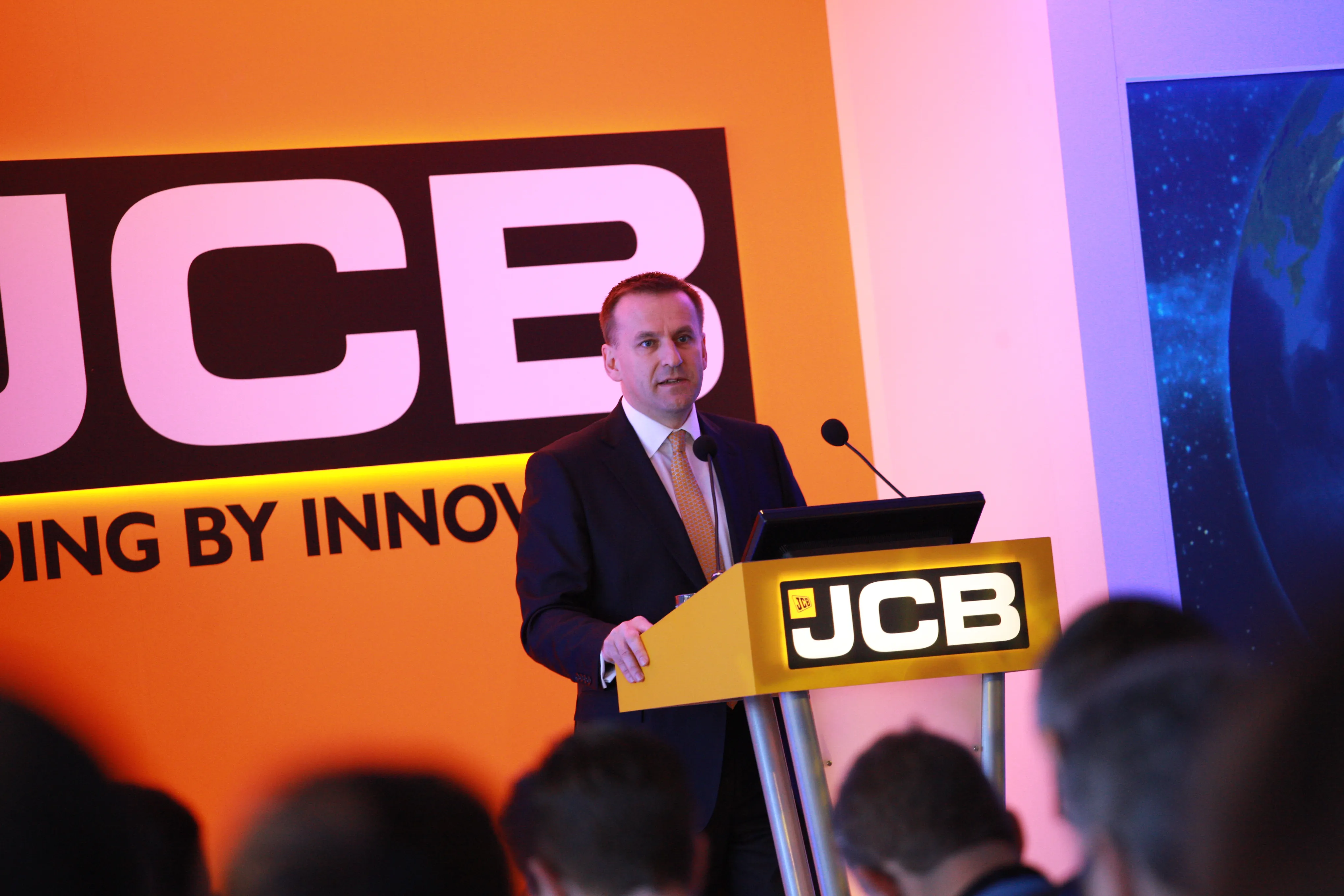UK construction equipment manufacturer JCB is celebrating its 70th anniversary. The firm was founded on October 23rd, 1945 by the late Joseph Cyril Bamford in a lock-up garage in the Staffordshire market town of Uttoxeter.
It was the same day as his son Anthony, now Lord Bamford, was born and as Mr Bamford remarked “being presented with a son tended to concentrate the mind and when you were starting at the bottom, there was only one way to go and that was up.”
The foundation for the growth that was to
October 21, 2015
Read time: 2 mins
UK construction equipment manufacturer 255 JCB is celebrating its 70th anniversary. The firm was founded on October 23rd, 1945 by the late Joseph Cyril Bamford in a lock-up garage in the Staffordshire market town of Uttoxeter.
It was the same day as his son Anthony, now Lord Bamford, was born and as Mr Bamford remarked “being presented with a son tended to concentrate the mind and when you were starting at the bottom, there was only one way to go and that was up.”
The foundation for the growth that was to follow was the manufacture of a tipping trailer made out of war time scrap which today stands proudly in the showroom of JCB’s World HQ.
It was produced in his garage and sold for £45 at the town’s market. The buyer’s old cart was also taken in part exchange and Mr Bamford refurbished it and sold for another £45 – achieving the original asking price of the trailer.
By 1947 the company was expanding and because Mr Bamford’s landlady also disapproved of his Sunday working, he moved a few miles down the road to a stable block at Crakemarsh Hall, which was owned by a Julia Cavendish, a survivor of the Titanic disaster. JCB also set on its first ever full-time employee, Arthur Harrison, who became foreman.
By 1950 JCB was on the move again, this time to the site of a former cheese factory in Rocester. The location had been identified by Bill Hirst, who revelled in the fact his workplace was now closer to home and enabled him to “spend an extra 10 minutes in bed.” Bill had joined JCB as a £1-a-week teaboy in 1947, Now aged 83 and living in Uttoxeter, he rose through the ranks to become Service Director.
1953 proved to be a pivotal year for new products when Mr Bamford invented the backhoe loader with the launch of the JCB Mk 1 excavator. It was the first time a single machine had been produced with a hydraulic rear excavator and front mounted shovel. This ingenuity still bears fruit today: JCB has manufactured more than 600,000 backhoes and they are now made on three continents
It was the same day as his son Anthony, now Lord Bamford, was born and as Mr Bamford remarked “being presented with a son tended to concentrate the mind and when you were starting at the bottom, there was only one way to go and that was up.”
The foundation for the growth that was to follow was the manufacture of a tipping trailer made out of war time scrap which today stands proudly in the showroom of JCB’s World HQ.
It was produced in his garage and sold for £45 at the town’s market. The buyer’s old cart was also taken in part exchange and Mr Bamford refurbished it and sold for another £45 – achieving the original asking price of the trailer.
By 1947 the company was expanding and because Mr Bamford’s landlady also disapproved of his Sunday working, he moved a few miles down the road to a stable block at Crakemarsh Hall, which was owned by a Julia Cavendish, a survivor of the Titanic disaster. JCB also set on its first ever full-time employee, Arthur Harrison, who became foreman.
By 1950 JCB was on the move again, this time to the site of a former cheese factory in Rocester. The location had been identified by Bill Hirst, who revelled in the fact his workplace was now closer to home and enabled him to “spend an extra 10 minutes in bed.” Bill had joined JCB as a £1-a-week teaboy in 1947, Now aged 83 and living in Uttoxeter, he rose through the ranks to become Service Director.
1953 proved to be a pivotal year for new products when Mr Bamford invented the backhoe loader with the launch of the JCB Mk 1 excavator. It was the first time a single machine had been produced with a hydraulic rear excavator and front mounted shovel. This ingenuity still bears fruit today: JCB has manufactured more than 600,000 backhoes and they are now made on three continents







